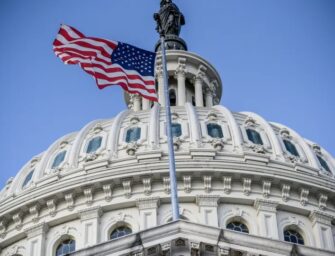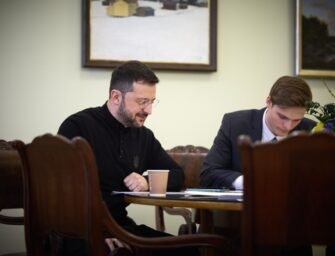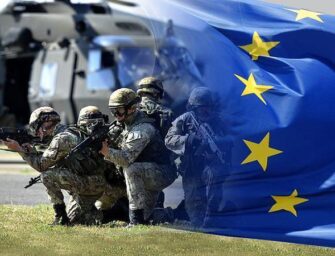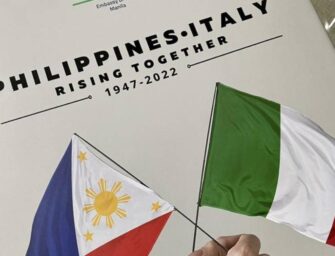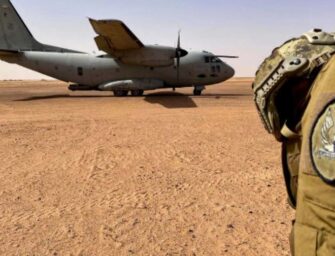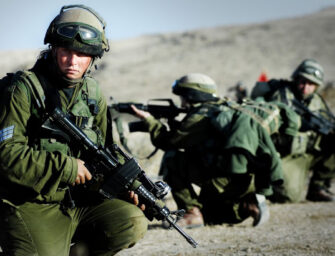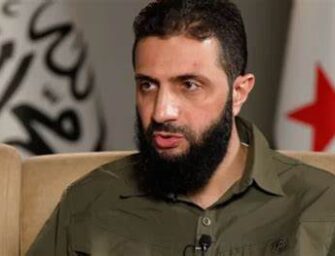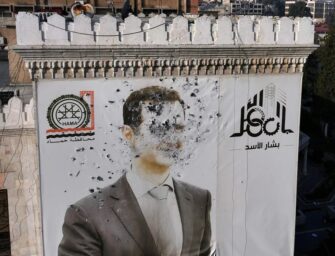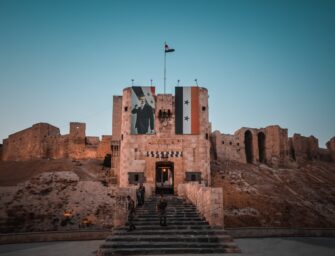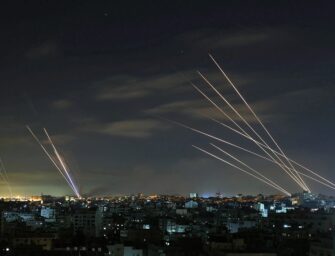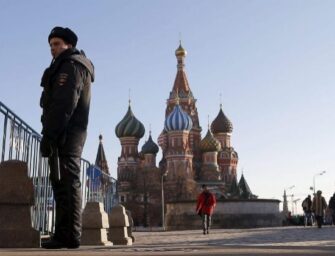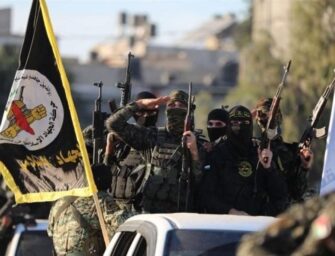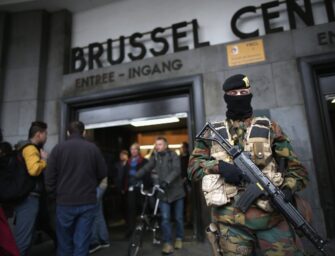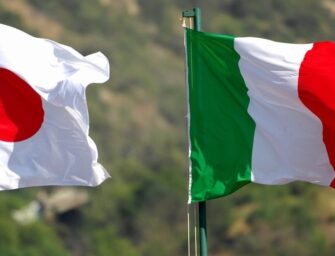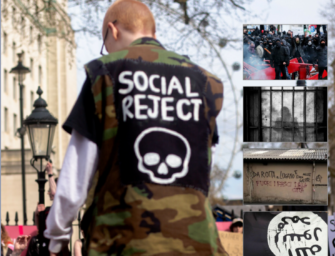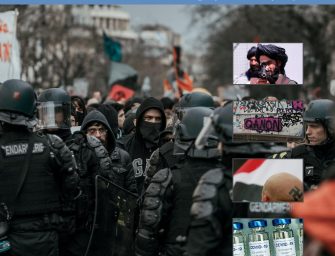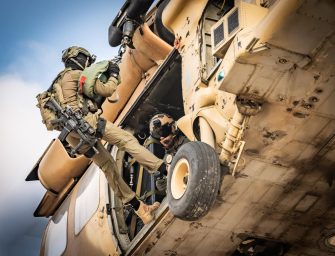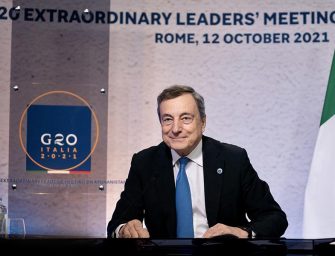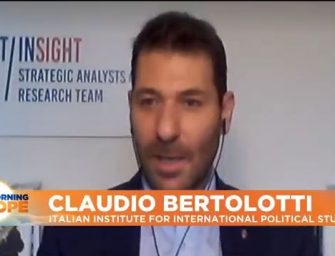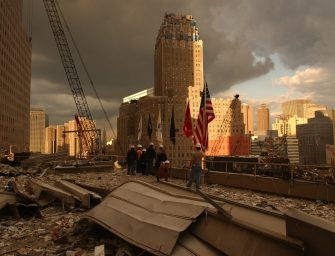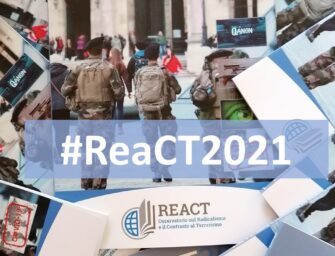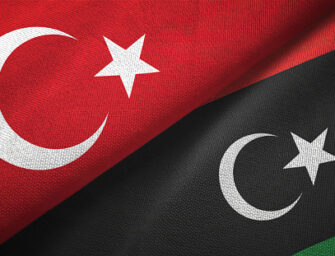Strategic Analysis 2019: Mashreq, Greater Maghreb, Egypt and Israel
The full report Strategic Analysis 2019: Mashreq, Gran Maghreb, Egypt and Israel by C. Bertolotti is now available
Introduction: factors and challenges in Maghreb and Mashreq areas
The 2011 Arab uprisings’ represents a breaking point announcing the need for a regime overhaul in the region; the consequences of these strong aftershocks still have the potential to undermine the entire Arab state system.
Dramatic changes in the Maghreb and Mashreq area after 2011 underline the need for external actors to forge a new policy approach to address the region’s long-term challenges. In tackling the region’s increasingly intersecting and conflicting politics, aggravated by external interventions, international policy makers should keep their attention on both old and new conflict drivers, or risk fighting symptoms rather than causes, and thus potentially do more harm.
The Arab uprisings underlined the notion that existing conditions in the Maghreb and Mashreq area had become unmaintainable and announced the region-wide expiry of a socioeconomic order that had underwritten relative stability for decades. Today, the grievances that led to the near collapse of the regional order persist, and economic trends paint a bleak picture of further decline. Within the area, political dynamics will continue to feed frustrations among the mass of the population, fueling unrest and outmigration. At the same time, the 2011 uprisings produced a certain momentum for change, and in some places provided new opportunities.
At social level, the countries within the Maghreb and Mashreq area have significant population growth and concentration in a largely challenging environment both physically and in terms of infrastructure and socio-economic development. This means that in many places there is an excess of water food and energy demand over supply. This is particularly the case in areas of extreme population concentration, along rivers and coasts for example, in otherwise dry and climatically challenging environments. Dense populations in a few areas surrounded by vast expanses of virtually uninhabited land create pressures in the concentrated spaces and challenges in governance over the more remote areas.
At economic level, as reported by the World Bank, growth in the Maghreb and Mashreq area is projected to remain subdued, at 1.3 percent. Activity in oil exporters has slowed due to weak oil sector output and the effects of intensified U.S. sanctions on Iran, despite an easing of fiscal stance and positive prospects in non-oil sectors in some countries. Many oil importers continue to benefit from business climate reforms and resilient tourism activity. Regional growth is projected to pick up to around 3 percent a year in 2020-21, supported by capital investment and policy reforms.
Risks to the outlook are tilted to the downside, including geopolitical tensions, reform setbacks, and a further escalation of global trade tensions.
Download the ITA/ENG full report Strategic Analysis 2019: Mashreq, Greater Maghreb, Egypt and Israel, by C. Bertolotti (pdf version)
Download the ITA/ENG full report Strategic Analysis 2019: Mashreq, Greater Maghreb, Egypt and Israel, by C. Bertolotti (eBook ePubb versio
SUMMARY
Introduction: factors and challenges in Maghreb and Mashreq areas
Algeria. Instabilità politica: tra opposizione e repressione
Main events
The political consequences of the mass protests
Who will succeed to Bouteflika?
Analysis, assessments and forecasts
Libya: Turkey’s strategic interest and the military support to Islamists. Russian expansion in Libya
Main events
The siege of Tripoli and the activism of the Libyan “Islamic State”
The political front
The military front
Turkish activism in support to Islamists: between financial interests and military aid
Turkey’s activism in Misurata and the bombing of the airport hosting the Italian contingent
Italian military presence in Misrata
As the competition for the Libyan oil assets becomes harsher, the Italian interests are affected
Russian expansion in Libya
Syria. “Peace spring”: the third Turkish military operation in Syria. The weakening of the Kurdish-Syrian YPG and the death of Abu Bakr al Baghdadi
Main events
“Peace spring”, October 9-23
Conflict history: the battlefield moves to the border
The US-Turkey and Russia-Turkey agreements. US flexibility and strengthening of the Moscow-Ankara axis
Analysis, assessments and forecasts
Tunisia. A new political balance after Béji Caïd Essebsi?
Main events
The legacy of Béji Caïd Essebsi
Political dynamics
Security concerns
Analysis, assessment and forecasts
Israel. Political uncertainty and attacks by the “Palestinian Islamic Jihad” group
Main events
The terrorist “Palestinian Islamic Jihad” group attacked Israel after the death of one of its leaders
Egypt. Popular protests do not weaken the government
Main events
Lebanon. Popular protests force the prime minister to resign
Main events
Morocco: new approach to combating terrorism and greater security efforts
Main events
The strategic priorities and the pillars
Fighting regional terrorism
Broadening the scope of defense to include security challenges
Morocco wants women, minors held in Iraq, Syria to come home
BCIJ Discovers Hideout of Dismantled, IS-linked Terror Cell
Consequences, risks and opportunities of oil price changes in the Maghreb and Mashreq countries
Impact on major North African oil producers
Impact on Morocco, the major North African fuel importer
Military expenditure in the Maghreb and Mashreq areas: different trends
Download the ITA/ENG full report Strategic Analysis 2019: Mashreq, Gran Maghreb, Egypt and Israel, by C. Bertolotti, (pdf version)
Download the ITA/ENG full report Strategic Analysis 2019: Mashreq, Gran Maghreb, Egypt and Israel, by C. Bertolotti (eBook ePubb version)
Main events in Maghreb and Mashreq – August
Algeria
Algeria protest movement marks 6 months Algerians launched an unprecedented protest movement in February, filling the streets of cities across the country and forcing the president out of office. Six months later, the movement is still going strong in the face of unyielding powers. Since Bouteflika stepped down, the movement has pushed for a complete overhaul of the political system. Demonstrators also called for a civil rather than a military state, after security forces tried to disperse the protesters and prevent them from reaching Central Post Square . Algeria opposition party Socialist Forces Front (FFS) calls on Army to draw inspiration from Sudan transition to launch a serious, inclusive, transparent and unconditional dialogue for an effective democratic transition . The high command of the army, weakened under the former leader, has meanwhile gained prominence. For the army chief, Ahmed Gaid Salah, the “fundamental demands” of the movement have been “entirely” satisfied: on August 2, he “categorically” rejected pre-conditions to launching talks with protesters, who have continued to call for his resignation and that of other Bouteflika-era insiders.
Egypt
Egypt seeks opportunities in Libya’s reconstruction. Libya’s reconstruction opens business opportunities for Egyptian construction material producers, especially in the presence of huge surpluses: Libya’s infrastructure, tourism, electricity and communications sectors are especially of interest for Egyptian companies. Projects in the first phase of Libya’s reconstruction are expected to cost approximately $20 billion to implement, the Libyan Trade Chambers Association said. Major Egyptian construction companies are reportedly contacting financing agencies, including the African Development Bank, the World Bank and the European Investment Bank, to bankroll projects in Libya. Competition from Chinese and Turkish companies is another challenge for Egyptian firms, especially with most companies from those counties not having the same financing problems Egyptian companies face .
Israel
August 17 Israeli forces shot dead a group of armed Palestinians along the Gaza Strip’s security fence, hours after three rockets were fired at southern Israel from the restive coastal enclave. Suspected infiltration attempt comes hours after three rockets fired at southern Israel from the Strip, one of which struck a home in Sderot. In a span of 10 days, six armed Palestinian terrorists — many of them current and former Hamas members — got through the security fence surrounding the Gaza Strip before being killed by Israeli troops. In one case on August 1, the gunman opened fire at IDF soldiers, injuring three of them, before he was shot dead. August 17, a group of four heavily armed terrorists, carrying assault rifles, rocket-propelled grenade launchers and rations, attempted to infiltrate Israeli territory before they were spotted and shot dead by troops on the border. The spring of 2019 saw a dramatic increase in the level of violence along the Gaza border, with near nightly riots and airborne arson attacks, but the violence waned in recent weeks due to a de facto ceasefire agreement between Israel and the Gaza-ruling Hamas terror group.
Lebanon
Lebanon sees high chances of offshore discovery, reforms on track-ministe. Lebanon has high chances of making an offshore energy discovery once drilling gets underway from November or December and its second licensing round is receiving lots of interest, the minister of energy and water said. Lebanon hopes an offshore energy discovery would give a big boost to its economy in the coming years. The country is in the eastern Mediterranean region where a number of sub-sea gas fields in Israeli, Cypriot and Egyptian waters have been discovered since 2009. Lebanon awarded its first offshore gas and oil exploration and production agreements in 2018 to a consortium of France’s Total, Italy’s Eni and Russia’s Novatek for two blocks .
Morocco
Spain has sent 750 vehicles, 15 drones, and dozens of radar equipment sets to Morocco to help improve migration control. The collaboration in migration border control between Spain and Morocco has resulted in a “significant decrease in the arrival of migrants to Spain”. Morocco’s efforts to curb irregular migration have received praise over recent months. Morocco’s efforts helped slow irregular migration in Spain. The month of July ended with a significant decrease irregular migration. 13, 326 irregular migrants arrived in Spain, “almost 9,000 less than in the previous period.” In July security services intercepted 2,362 migrants at sea compared to 7,885 in the same period in 2018. The number of aborted attempts in July represents a 70% decrease. Morocco considers Spain one of its major partners in the fight against irregular migration. According to the European Border and Coastguard Agency Frontex the “number of detections of illegal border crossings on Europe’s main migratory routes rose 4% from the previous month to around 10 500.”
Syria
On August 19 Syrian forces entered the key town of Khan Shaykhunin Idlib province amid heavy fighting with jihadists and their rebel allies. Syrian military forces entered town for the first since they lost control of it in 2014. Earlier, there were reports pro-regime forces were locked in heavy fighting with militants, leaving dozens of combatants dead. Now almost emptied of inhabitants, Khan Shaykhun sheltered almost 100,000 people before the start of the current military escalation, the majority displaced from Hama province.
On August 6, Turkish President Recep Tayyip Erdogan reiterated his warnings that Turkey is poised to launch a military operation against the Kurdish People’s Protection Units (YPG) east of the Euphrates River in northeastern Syria. The latest note came two days after Erdogan said Ankara had already notified both the United States and Russia of its plans. On August 19, Syrian fighter jets targeted at least one Turkish military convoy that had crossed into Syria, causing a number of casualties .









